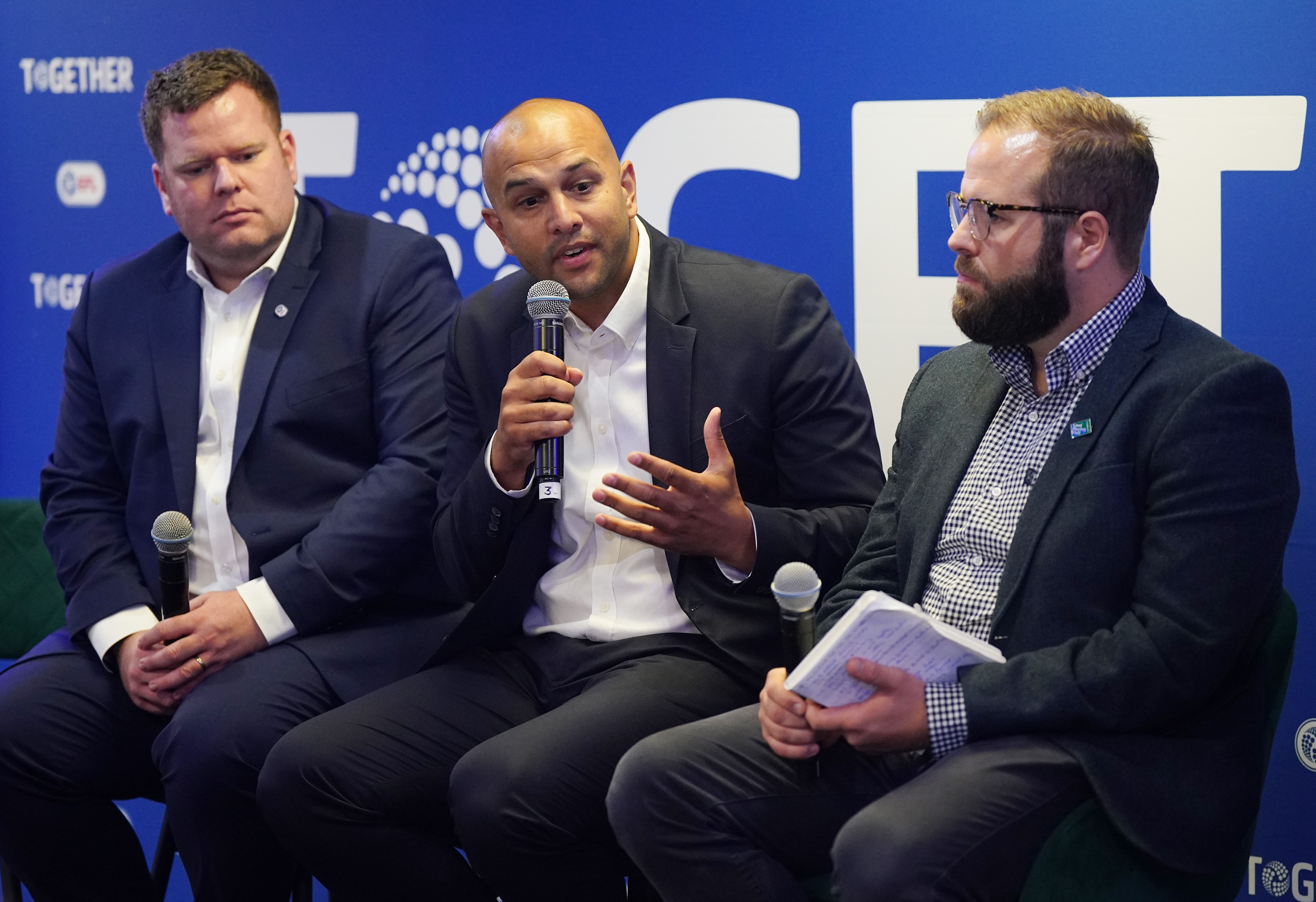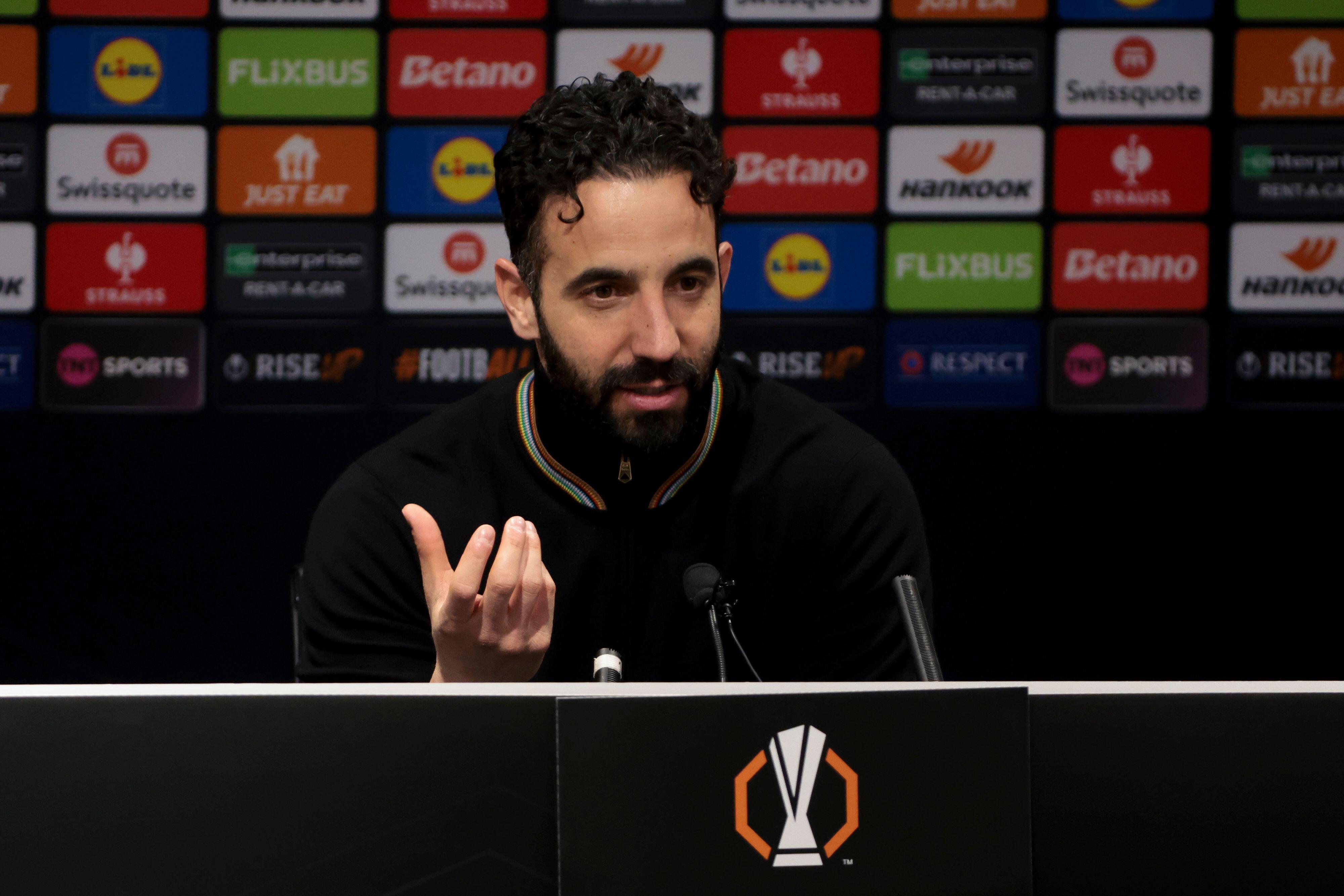Anwar Uddin – complicated language can confuse fans when it comes to diversity

The first British South Asian to captain a league side admits diversity is a complicated subject and worries complex language is causing football fans to “switch off”.
Anwar Uddin made history when, in 2007, he led out League Two side Dagenham & Redbridge against Stockport.
It was one of many milestones throughout the career of the first British-Bangladeshi to play professional English football, who now leads the Fans for Diversity campaign and worries the sport is not reaching those it most wants to listen.
“When you talk about real change, about equality and diversity, it’s a complicated subject,” he told the PA news agency at the launch of Together, the EFL’s new inclusion strategy.
“And actually when you look at some of the strategies, discussions, your everyday football fan will switch off.
“Some of the terminology, the words, the discussion, it’s just very complicated. I remember when I retired as a football player and I started to step into this space it was a massive learning curve for me, and actually having learned the terminology and with all my lived experience I think we all need to simplify it, to be honest.
“Yes, the complications are great because detail is important, but actually it’s just about being the best human being you can be and having an understanding that there are now people that are confident to be their authentic self, which may differ to you entirely.
Get FourFourTwo Newsletter
The best features, fun and footballing quizzes, straight to your inbox every week.
“You may have never come across a person that you’re standing or sitting next to in a football stadium in your life, but there’s nothing scary about it.
“I’d never really had a lot of a relationship with the LGBTQ+ community, now we’re working with [them] every single day. We’ve set up trans teams with the community and allies, mixed gender teams.
“You have to go into it understanding you don’t have all the answers, but for people from underrepresented communities, the importance of allies is huge.”
The picture for South Asian footballers has not changed much since Uddin retired from a 12-year career, which first saw him work his way up to West Ham’s reserves before spells at clubs including Sheffield Wednesday, Bristol Rovers and Barnet.
A 2021 Professional Footballers’ Association report revealed that, despite Asian and Asian British people making up almost 7.5 per cent of the population in the last census – the second-largest group in the UK – a “shockingly small” eight players from the community made first-team appearances across the Premier League and English Football League in 2019/2020.
In April, the Premier League launched a dedicated ‘South Asian Action Plan’ alongside Kick it Out.
🗣 "The partnership with @kickitout will provide us with independent diversity and inclusion expertise"— Premier League (@premierleague) April 28, 2022
Being a trailblazer, said Uddin, also often meant unintentionally standing out. It is why he believes what might be called micro-progressions – or, in simple terms, small acts – are as vital as high-level strategy.
“Growing up, my parents actually told me to stay away from stadiums don’t go anywhere near them,” he said.
“My dad came over here in the 1960s as a South Asian from Bangladesh and he had a lot of negative experiences with football. He worked at a restaurant, and on matchdays it was just a nightmare. Bricks through windows, racism.
“But if I’d stayed away I wouldn’t have the life and the career I’ve had. Being in stadiums and looking around, I’m very conscious of visibility and representation.
“Some people will go anywhere and not really notice things, but everywhere I’ve been I’ve been the only.

“There’s been a lot of change and progress, but it comes with tension because change sometimes can be uncomfortable. But what we are seeing now is we’re living in an environment where people are more equipped with more education and understanding about who they are, and the confidence to go and watch games.
“But we want a wider fan base to actually be aware that even something as small as a smile, or opening a door, or even being together on the terraces can have a massive, massive say in whether an individual comes back again.”
